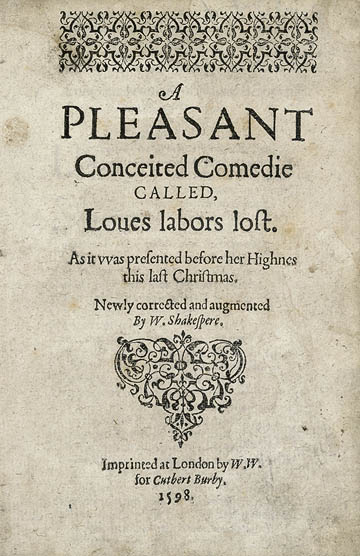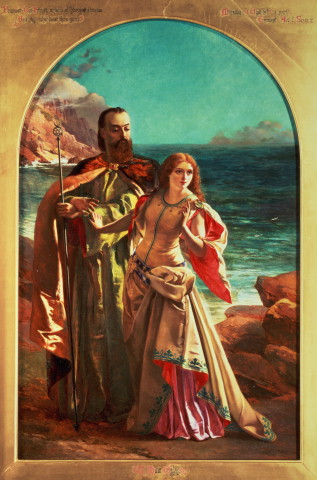|
Ziye
''Ziye'' (子夜), or known by its English translated title as ''Midnight: A Romance of China, 1930'', is a 1933 novel by Chinese author Mao Dun. It is a realist depiction of life in contemporary Shanghai. In addition to the full edition, there were also abridged editions of the novel in publication. The novel depicts the wealth and modernity of modern-Shanghai, influenced by foreign colonialism and capitalism. However Western modernity frightens the protagonist's father, who is a member of the Chinese landed gentry from the countryside. Mao Dun depicts the modernity of Shanghai with "purple" prose, like "three 1930-model Citroens", electric lights, Browning rifles, and "Grafton gauze" flannel suits. The novel also uses English terms like "beauty parlors" and a "neon" sign with the words "Light, Heat, Power!", which appears on the first page. The other English is from two plays by Shakespeare: Love's Labour's Lost and The Tempest, as well as Scott's Ivanhoe and three referenc ... [...More Info...] [...Related Items...] OR: [Wikipedia] [Google] [Baidu] |
Mao Dun
Shen Dehong (Shen Yanbing; 4 July 1896 – 27 March 1981), best known by the pen name of Mao Dun, was a Chinese novelist, essayist, journalist, playwright, literary and cultural critic. He was highly celebrated for his Literary realism, realist novels, including ''Ziye, Midnight'', which depicts life in cosmopolitan Shanghai. Mao was one of the founders of the Chinese Communist Party and participated in a number of left-wing cultural movements during the 1920s and 1930s. He was the editor-in-chief of ''Fiction Monthly'' and helped lead the League of Left-Wing Writers. He formed a strong friendship with fellow left-wing Chinese author Lu Xun. From 1949 to 1965, Mao served as the first Minister of Culture and Tourism (China), Minister of Culture in the People's Republic of China. In addition to novels, Mao Dun published a number of essays, scripts, theories, short stories, and novellas. He was well known for translating Western literature, as he had gained academic knowledge o ... [...More Info...] [...Related Items...] OR: [Wikipedia] [Google] [Baidu] |
Shanghai
Shanghai, Shanghainese: , Standard Chinese pronunciation: is a direct-administered municipality and the most populous urban area in China. The city is located on the Chinese shoreline on the southern estuary of the Yangtze River, with the Huangpu River flowing through it. The population of the city proper is the List of largest cities, second largest in the world after Chongqing, with around 24.87 million inhabitants in 2023, while the urban area is the List of cities in China by population, most populous in China, with 29.87 million residents. As of 2022, the Greater Shanghai metropolitan area was estimated to produce a gross metropolitan product (GDP (nominal), nominal) of nearly 13 trillion Renminbi, RMB ($1.9 trillion). Shanghai is one of the world's major centers for finance, #Economy, business and economics, research, science and technology, manufacturing, transportation, List of tourist attractions in Shanghai, tourism, and Culture of Shanghai, culture. The Port of Sh ... [...More Info...] [...Related Items...] OR: [Wikipedia] [Google] [Baidu] |
Chinese Landed Gentry
The "gentry", or "landed gentry" in China was the elite who held privileged status through passing the Imperial exams, which made them eligible to hold office. These literati, or scholar-officials, (''shenshi'' 紳士 or ''jinshen'' 縉紳), also called 士紳 ''shishen'' "scholar gentry" or 鄉紳 ''xiangshen'' "local gentry", held a virtual monopoly on office holding, and overlapped with an unofficial elite of the wealthy. The Tang and Song dynasties expanded the civil service exam to replace the nine-rank system which favored hereditary and largely military aristocrats. As a social class they included retired mandarins or their families and descendants. Owning land was often their way of preserving wealth.Chang Chung-li hongli Zhang ''The Chinese Gentry: Studies on Their Role in Nineteenth-Century Chinese Society'' (Seattle: University of Washington Press, 1955). Confucian classes The Confucian ideal of the four occupations ranked the scholar-official above farmers, a ... [...More Info...] [...Related Items...] OR: [Wikipedia] [Google] [Baidu] |
Shakespeare
William Shakespeare ( 23 April 1564 – 23 April 1616) was an English playwright, poet and actor. He is widely regarded as the greatest writer in the English language and the world's pre-eminent dramatist. He is often called England's national poet and the " Bard of Avon" or simply "the Bard". His extant works, including collaborations, consist of some 39 plays, 154 sonnets, three long narrative poems and a few other verses, some of uncertain authorship. His plays have been translated into every major living language and are performed more often than those of any other playwright. Shakespeare remains arguably the most influential writer in the English language, and his works continue to be studied and reinterpreted. Shakespeare was born and raised in Stratford-upon-Avon, Warwickshire. At the age of 18, he married Anne Hathaway, with whom he had three children: Susanna, and twins Hamnet and Judith. Sometime between 1585 and 1592 he began a successful career in Lon ... [...More Info...] [...Related Items...] OR: [Wikipedia] [Google] [Baidu] |
Love's Labour's Lost
''Love's Labour's Lost'' is one of William Shakespeare's early comedies, believed to have been written in the mid-1590s for a performance at the Inns of Court before Queen Elizabeth I. It follows the King of Navarre and his three companions as they attempt to swear off the company of women for three years in order to focus on study and fasting. Their subsequent infatuation with the Princess of France and her ladies makes them forsworn (break their oath). In an untraditional ending for a comedy, the play closes with the death of the Princess's father, and all weddings are delayed for a year. The play draws on themes of masculine love and desire, reckoning and rationalisation, and reality versus fantasy. Though first published in quarto in 1598, the play's title page suggests a revision of an earlier version of the play. There are no obvious sources for the play's plot. The use of apostrophes in the play's title varies in early editions, though it is most commonly given as ''Love ... [...More Info...] [...Related Items...] OR: [Wikipedia] [Google] [Baidu] |
The Tempest
''The Tempest'' is a Shakespeare's plays, play by William Shakespeare, probably written in 1610–1611, and thought to be one of the last plays that he wrote alone. After the first scene, which takes place on a ship at sea during a tempest, the rest of the story is set on a remote island, where Prospero, a magician, lives with his daughter Miranda (The Tempest), Miranda, and his two servants: Caliban, a savage monster figure, and Ariel (The Tempest), Ariel, an airy spirit. The play contains music and songs that evoke the spirit of enchantment on the island. It explores many themes, including Magic (supernatural), magic, betrayal, revenge, forgiveness and family. In Act IV, a wedding masque serves as a play-within-a-play, and contributes spectacle, allegory, and elevated language. Although ''The Tempest'' is listed in the First Folio as the first of Shakespeare's comedies, it deals with both tragic and comic themes, and modern criticism has created a category of Shakespeare's ... [...More Info...] [...Related Items...] OR: [Wikipedia] [Google] [Baidu] |
Walter Scott
Sir Walter Scott, 1st Baronet (15 August 1771 – 21 September 1832), was a Scottish novelist, poet and historian. Many of his works remain classics of European and Scottish literature, notably the novels ''Ivanhoe'' (1819), '' Rob Roy'' (1817), '' Waverley'' (1814), ''Old Mortality'' (1816), '' The Heart of Mid-Lothian'' (1818), and ''The Bride of Lammermoor'' (1819), along with the narrative poems '' Marmion'' (1808) and ''The Lady of the Lake'' (1810). He had a major impact on European and American literature. As an advocate and legal administrator by profession, he combined writing and editing with his daily work as Clerk of Session and Sheriff-Depute of Selkirkshire. He was prominent in Edinburgh's Tory (political faction), Tory establishment, active in the Royal Highland and Agricultural Society of Scotland, Highland Society, long time a president of the Royal Society of Edinburgh (1820–1832), and a vice president of the Society of Antiquaries of Scotland (1827–182 ... [...More Info...] [...Related Items...] OR: [Wikipedia] [Google] [Baidu] |
Ivanhoe
''Ivanhoe: A Romance'' ( ) by Walter Scott is a historical novel published in three volumes, in December 1819, as one of the Waverley novels. It marked a shift away from Scott's prior practice of setting stories in Scotland and in the more recent past. It became one of Scott's best-known and most influential novels. Set in England in the Middle Ages, with colourful descriptions of a tournament, outlaws, a witch trial, and divisions between Jews and Christians, Normans and Saxons, the novel was credited by many, including Thomas Carlyle and John Ruskin, with inspiring increased interest in chivalric romance and medievalism. As John Henry Newman put it, Scott "had first turned men's minds in the direction of the Middle Ages". It was also credited with influencing contemporary popular perceptions of historical figures such as King Richard the Lionheart, John, King of England, Prince John, and Robin Hood. Composition and sources In June 1819, Walter Scott still suffered from ... [...More Info...] [...Related Items...] OR: [Wikipedia] [Google] [Baidu] |
Nero
Nero Claudius Caesar Augustus Germanicus ( ; born Lucius Domitius Ahenobarbus; 15 December AD 37 – 9 June AD 68) was a Roman emperor and the final emperor of the Julio-Claudian dynasty, reigning from AD 54 until his death in AD 68. Nero was born at Antium in AD 37, the son of Gnaeus Domitius Ahenobarbus (father of Nero), Gnaeus Domitius Ahenobarbus and Agrippina the Younger (great-granddaughter of the emperor Augustus). Nero was three when his father died. By the time Nero turned eleven, his mother married Emperor Claudius, who then Adoption in ancient Rome, adopted Nero as his heir. Upon Claudius' death in AD 54, Nero ascended to the throne with the backing of the Praetorian Guard and the Senate. In the early years of his reign, Nero was advised and guided by his mother Agrippina, his tutor Seneca the Younger, and his praetorian prefect Sextus Afranius Burrus, but sought to rule independently and rid himself of restraining influences. The power ... [...More Info...] [...Related Items...] OR: [Wikipedia] [Google] [Baidu] |
1933 Novels
Events January * January 11 – Australian aviator Sir Charles Kingsford Smith makes the first commercial flight between Australia and New Zealand. * January 17 – The United States Congress votes in favour of Philippines independence, against the wishes of U.S. President Herbert Hoover. * January 28 – "Pakistan Declaration": Choudhry Rahmat Ali publishes (in Cambridge, UK) a pamphlet entitled ''Now or Never; Are We to Live or Perish Forever?'', in which he calls for the creation of a Muslim state in northwest India that he calls "Pakistan, Pakstan"; this influences the Pakistan Movement. * January 30 ** Nazi Party leader Adolf Hitler is appointed Chancellor of Germany (German Reich), Chancellor of Germany by President of Germany Paul von Hindenburg. ** Édouard Daladier forms a government in France in succession to Joseph Paul-Boncour. He is succeeded on October 26 by Albert Sarraut and on November 26 by Camille Chautemps. February * February 1 – Adolf Hitle ... [...More Info...] [...Related Items...] OR: [Wikipedia] [Google] [Baidu] |








